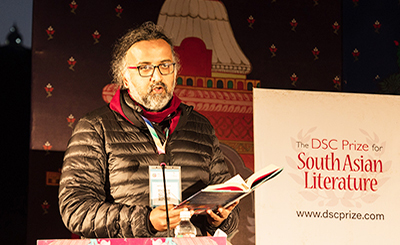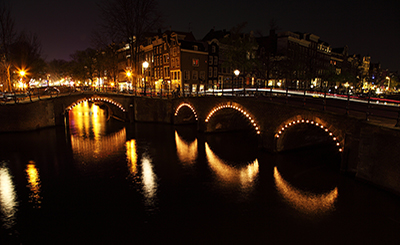
Everyone knows writers like to beg, borrow, and steal from other writers, preferably dead ones, and of course there’s no particular reason for them to confine themselves to works written in their own language.
A bit over a decade ago, Rosmarie Waldrop, of the independent publishing house Burning Deck, asked me to translate an experimental novel from the 1960s by Ludwig Harig, The Trip to Bordeaux. The book, it turns out, is indebted to both the great early 19th-century German poet Friedrich Hölderlin, and the greatest essayist of all time — who was born just outside Bordeaux — Michel de Montaigne. It is filled with their quotes, which I diligently tracked down. But there was one mysterious chapter that eluded me. Entitled “Table Talk,” it described the most grotesque of feasts, in the form of a strange list of butcher-shop prodigies. Baffled by the obscure German words for all these mysterious meats, I turned to other sources.
First, I consulted the Brothers Grimm’s authoritative dictionary begun in 1838. Its usage notes led me to a bawdy 16th-century German translation of Rabelais’ 16th-century Gartantua and Pantagruel, then Thomas Urquhart’s 17th-century translation of the novel. As I searched for a paragraph or two I could borrow, I realised that none of the passages in question appeared in Urquhart’s English translation — nor in the French original, for that matter. All of them had been added by the book’s German translator, Johann Fischart, a satirist, who had not only made free with Rabelais’s prose but added entire chapters of his own. As my bad luck would have it, the bits that appeared most succulently those of Ludwig Harig were invariably Fischart’s additions. The translation I finally published (with some incisive edits by my publisher, Waldrop) invites the reader to feast on “all manner of smoked and dryed and salted and raw meat: further many barrels full of rank dog-befarted boar’s flesh, of farced fatted beeves, wethers, emasculated bullocks, gelded calves’ chalderns, miscarven oxen from vicar or knacker.”
Our modern notion of what a literary translation is (i.e. a piece of writing closely corresponding in content, style, structure, tone, etc. to its original) may seem to us intuitive and obvious, but in fact this model isn’t much more than 200 years old in literary circles. While an insistence on lexical accuracy was always a key feature of Bible translation, it was long the norm in the case of literary texts for authors to translate the work of other authors with an extremely free hand. It went without saying, then, that an 18th century author like Christoph Martin Wieland, setting himself the task of “Germaning” Shakespeare, would give the Bard’s writing a flowery overlay, and render his verse as prose. Wieland is a big name in German letters, big enough that when I discovered a three-volume edition of August Wilhelm Schlegel’s turn of the 19th-century Shakespeare translations (my German Shakespeare of choice) at an antiquarian bookshop, the bookseller apologised for not having Wieland on hand as he was ringing up my purchase.
Nowadays we translate quite differently, at least much of the time, or at least we try to. But the possibility of the existence of a truly “faithful, accurate” translation tends to be much overstated. Every act of translation is of necessity an interpretative act; every translator worth her salt is by definition a writer, and translations bear the mark of their translators to a far greater extent than the layperson might assume.
Page
Donate Now
More from The Byword
Comments
*Comments will be moderated











